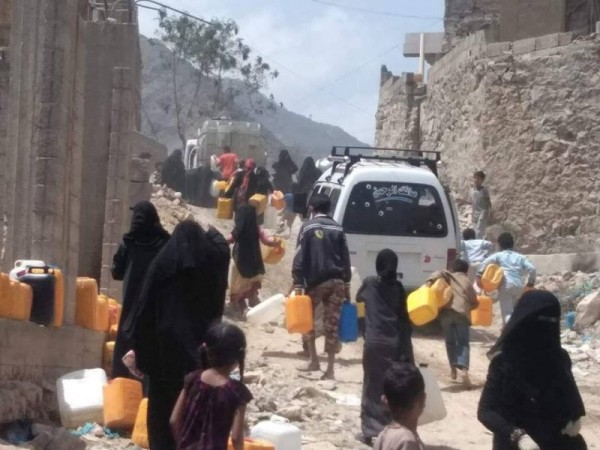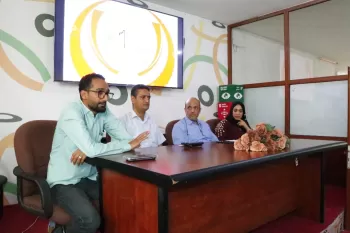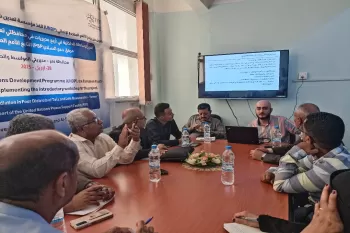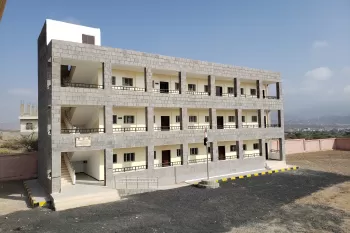Millions of Yemenis lack clean drinking water
On the occasion of the World Water Day March 22 , 15 million Yemenis do not have access to clean water where a recent International Red Cross statistics show that 90 percent of Yemen’s population relies on private tanks to get water. Mohammed Ameen Al-Sharabi, a resident in Taiz city, buys a water tank with a capacity of 4 thousand liters for 15 thousand riyals; however, he stressed that this water is not suitable for drinking and causes cholera and many diseases.
Although Taiz occupies the first place in the water crisis, all areas of Yemen under the crisis line because of the war that doubled the tragedy of the population, high fuel prices that increased the cost of its delivery, and the cultivation of Qat that depleted of water stocks.
The World Health Organization (WHO) has revealed that 166 Yemeni citizens have died from cholera in different regions of the country since the beginning of 2019 and recorded 97101 cases of acute water diarrhea since the beginning of the year until March 14. The WHO in a statement said that fears of a third wave of cholera have increased for the rainy season enters and health services deteriorate. It pointed out that combating the epidemic requires improving water and sanitation networks, providing safe drinking water and raising awareness of the importance of personal hygiene and the safe disposal of rubbish.
As agreed by the United Nations in 2010 ,”The right to get safe and clean drinking water, as well as access to sanitation services, is a human right and essential for the full enjoyment of life and all human rights. ” United Nations also works on achieving the sixth goal of the sustainable development goals that ensuring access to water for all by 2030.
Tamdeen Youth Foundation (TYF), which has contributed to the provision of safe drinking water and sanitation services to thousands of people in Yemen from 2015 until today, including access to remote and rugged terrain, as well as supplying water to populations and hospitals in conflict areas, providing health filters and reservoirs, building latrines and organizing community awareness campaigns, appeals the international community to fulfill its relief commitments to Yemen, criminalize the practice of cutting water and targeting facilities linked to the lives of civilians.




